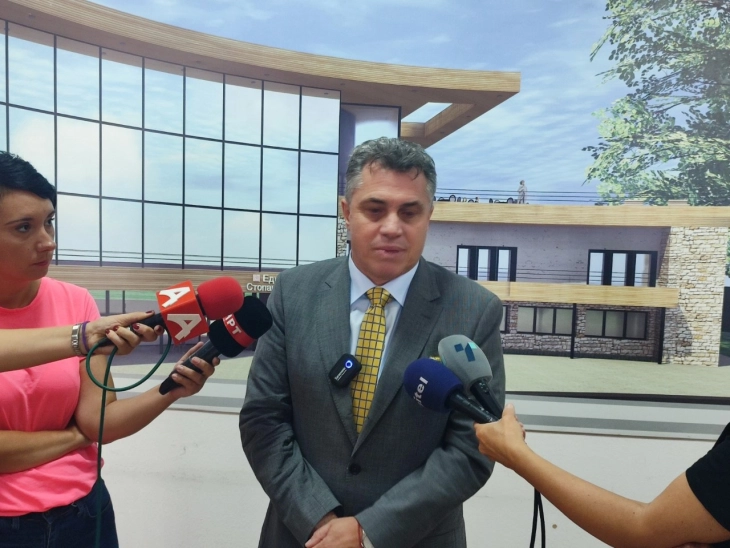Tupancheski: Referendum initiative has many legal anomalies

Skopje, 15 September 2022 (MIA) – Justice Minister Nikola Tupancheski said Thursday that the referendum initiative has many legal anomalies, shortcomings that make it insufficient from a legal aspect to achieve a projected goal, a potential one, whatever it may be.
Before submitting the initiative, he added, the provisions of the Constitution, the Law on Referendum and the parliamentary Rules of Procedure should have been taken into account.
“Article 118 of the Constitution explicitly regulates the matter regarding international relations, and in that context international treaties. International treaties, as stated under this Article, are an integral part of the national legal order and cannot be changed by a law,” Tupancheski said ahead of a launch of the National Strategy for Justice for Children (2022-2026) and the related Action Plan (2022-2023).
According to him, regulation within the Law on Referendum is also of particular importance.
“Article 24 mentions that a referendum could be called before signing, i.e. ratifying an international treaty. This law has another provision that seems to be relevant, which is Article 28, referring to the so-called Badinter majority and what implications the decision has when calling a referendum. In addition, there’s the Rules of Procedure of the Parliament of the Republic of North Macedonia, and these are the acts that are relevant when making a decision on calling a referendum,” the Justice Minister said.
He noted that in terms of concluding and signing international treaties, the President of the country and the Government of the country signing it have sole competence.
“Let's not forget that international law differs from national law in many ways, in terms of complementarity. It is mandatory to respect the obligations undertaken by the international treaty, and in terms of a manner in which it can be terminated, the Parliament of the Republic of North Macedonia is certainly not responsible. Definitely, when talking about a de-ratification process, it is nowhere regulated by a national regulation,” said Tupancheski.
Parliament Speaker Talat Xhaferi on Wednesday dismissed VMRO-DPMNE's referendum initiative, on the grounds that it is unconstitutional, i.e. Article 118 of the Constitution states that international agreements cannot be changed under a law.
On September 9, VMRO-DPMNE submitted the initiative to Parliament on scheduling a referendum to annul the Treaty with Bulgaria.
On September 5, the VMRO-DPMNE Executive Committee adopted the referendum question: “Are you in favor of terminating the validity of the ratification law on the Agreement for Friendship, Good Neighborliness and Cooperation between Macedonia and Bulgaria, published in the Official Gazette on Jan. 18, 2017?”.







